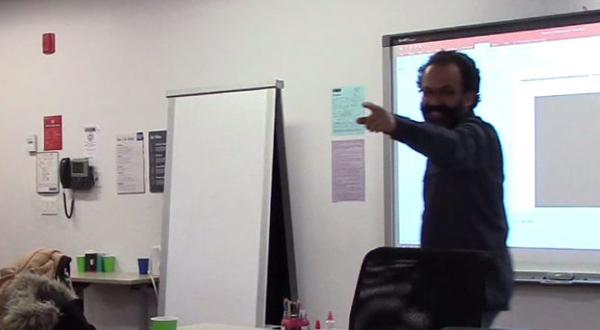
IN THE NAME OF IMAGINARY LEARNING
“Logic will get you from A to B. Imagination will take you everywhere.” – Albert Einstein
Extreme enthusiasm, borne from years of experience, illuminates my teaching philosophy. I believe in the efficient distribution of knowledge, rooted in a balanced and creative approach. Practical collaboration through Visual Arts serves as a bridge, linking enthusiasm and knowledge for students, fostering a conceptual understanding of creation.
Mutual Learning Approach: I embrace mutual learning, acknowledging that both students and I possess equal potential for creativity. By providing a wide lens and different angles for generating ideas, I encourage students to contribute their potential concepts. The exchange of techniques and creations creates a symbiotic relationship where learning becomes a collective endeavor.
Teaching Framework: I begin by establishing a comprehensive teaching-learning framework, answering the three WH tips: why am I in this class, when will it end, and where are we going. Realism and relevance to the subject guide my approach. Continuous learning, both in subject knowledge and pedagogical skills, remains a priority in the dynamic atmosphere of a Learning-Center school.
Motivation and Creativity: Acknowledging the inherent motivation of art students, I incorporate subject-matter motivation strategies. Unconventional questions and a creative teaching method, engaging all senses, cultivate curiosity and an active learning environment. By sharing and respecting ideas, I create a classroom filled with creativity, inventions, and innovations.
Effective Communication: Recognizing the impact of communication, I prioritize dialogue over monologue. Fostering a sense of community, belonging, and mutual support enhances the learning experience. Through feedback, assessments, and a positive atmosphere, I strive to make students feel valued members of a creative community.
Unleashing Potential: Believing in the unlimited ability of every individual, I tap into their sources of curiosity and imagination. Accessibility strategies cater to diverse learning styles, making the classroom an inclusive space. Supporting struggling students individually and dedicating time to understanding their unique perspectives ensures a supportive learning environment.
Promoting Success: The question of promoting student success guides my teaching methods. Advocating for democratic learning, encouraging active participation in society, providing exploration opportunities, adapting lesson strategies, and adopting a supportive listening style contribute to a smooth learning journey.
Learning Circle in Art: In practical art subjects, I follow a learning circle: understanding students’ interests, explaining the 3 WH tips, and introducing the methodology. Encouraging idea hunting, nature observation, visualization, material matching, and applying visual arts principles lead students to create meaningful artworks.
“You are not a drop in an ocean,You are the entire ocean in a drop.” – Rumi
Reza Hosseiny / 2019
